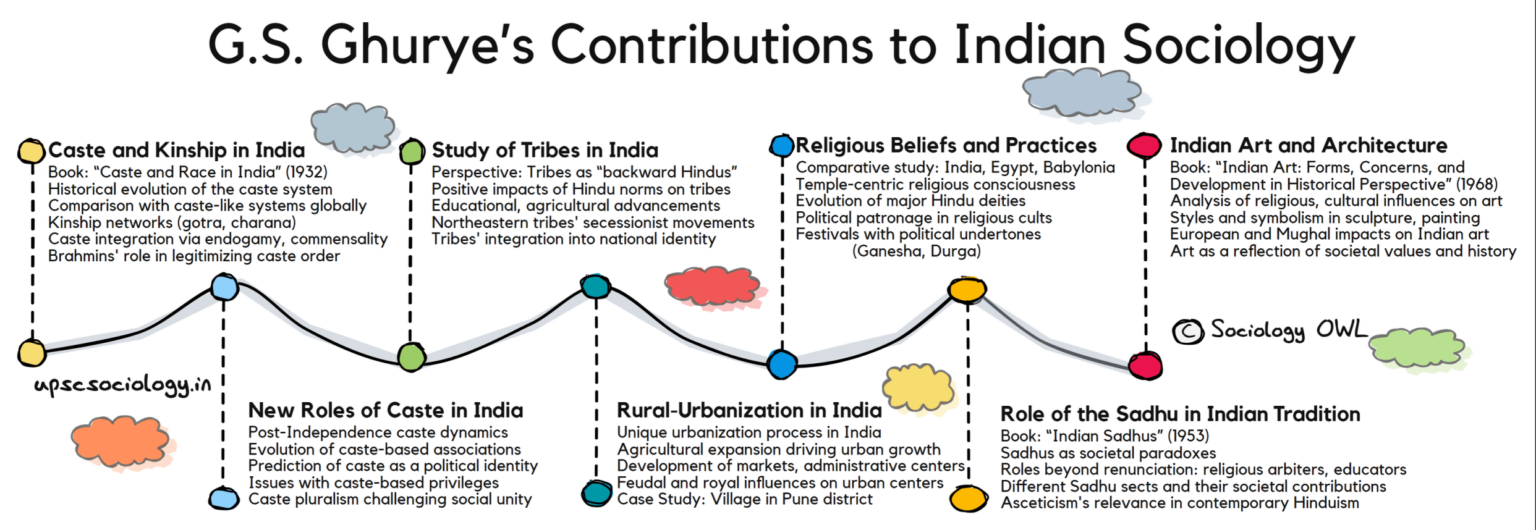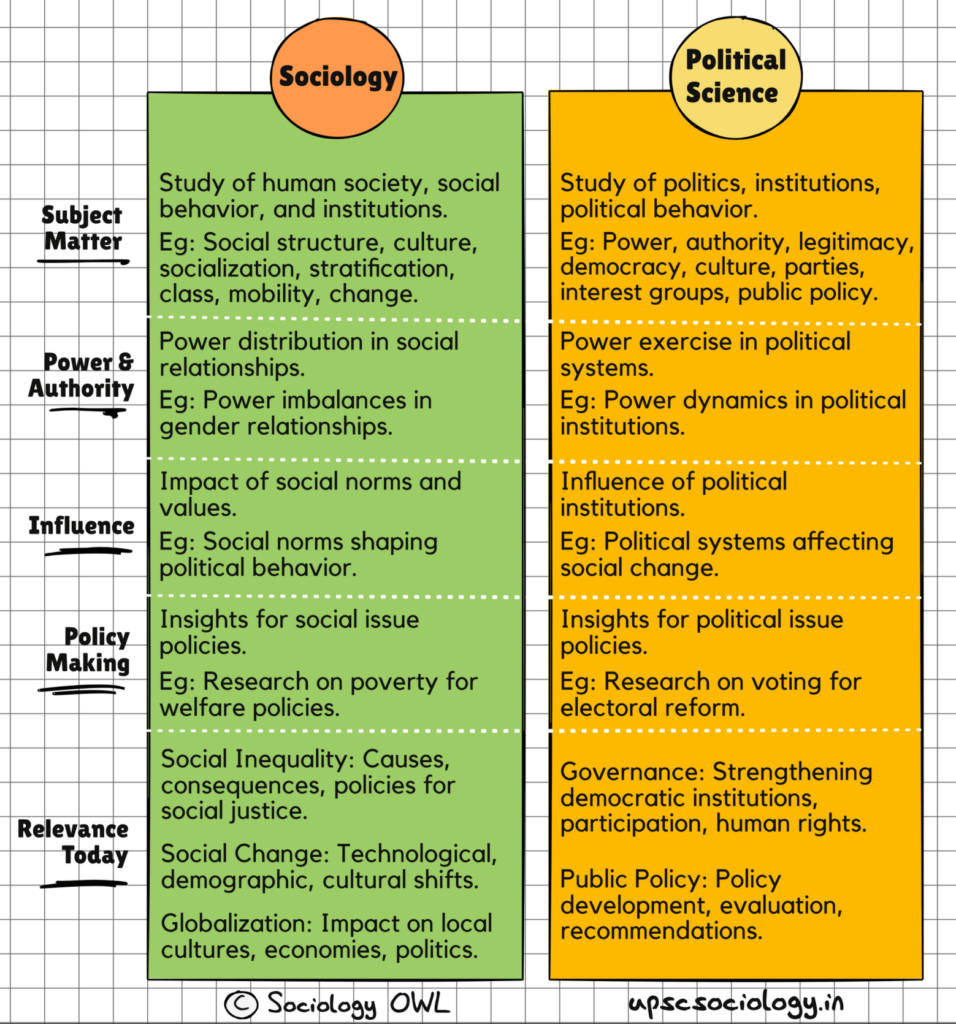Sociology is a social science that studies human societies, their interactions, and the processes that preserve and change them. It does this by examining the dynamics of constituent parts of societies such as institutions, communities, populations, and gender, racial, or age groups. Sociology also studies social stratification or social class, social movements, and social change, as well as societal disorder in the form of crime, deviance, and revolution. The scope of sociology is extremely broad, encompassing the analysis of every aspect of social life from small-scale interactions to the development of entire societies. The field is divided into two main schools of thought: the formalistic school and the synthetic school.
I. Formalistic School of Sociology
The formalistic school, also known as the positivist school, is based on the belief that sociology should be a rigorous and objective science. This approach emphasizes the use of empirical research methods, such as surveys, experiments, and statistical analysis, to study social phenomena. The formalistic school is characterized by the following features:
A. Focus on Quantitative Data
The formalistic school prioritizes the collection and analysis of quantitative data, which can be measured and compared. This approach allows sociologists to identify patterns and trends in social behavior and draw conclusions about the underlying causes of these phenomena.
B. Emphasis on Causality
The formalistic school seeks to identify causal relationships between social variables, which can help explain why certain social phenomena occur. By understanding the causes of social issues, sociologists can develop targeted interventions and policies to address them.
C. Use of Scientific Methods
The formalistic school emphasizes the use of scientific methods in the study of social phenomena. This includes the development of hypotheses, the collection of data through systematic observation or experimentation, and the analysis of this data to test the hypotheses.
D. Objectivity
The formalistic school values objectivity in sociological research, meaning that researchers should strive to remain neutral and unbiased in their observations and interpretations of social phenomena. This approach helps ensure that the conclusions drawn from the research are valid and reliable.
E. Generalizability
The formalistic school aims to develop general theories and principles that can be applied across different social contexts. By identifying universal patterns and relationships in social behavior, sociologists can better understand the underlying structures and processes that shape human societies.
Formalistic School Sociologists:
Émile Durkheim: Often considered the father of modern sociology, Durkheim was a key figure in the development of the formalistic school. He emphasized the importance of using scientific methods to study social phenomena and sought to identify the underlying social structures that shape human behavior. His work on social integration, suicide, and the division of labor are examples of his formalistic approach.
Auguste Comte: As the founder of positivism, Comte believed that sociology should be a rigorous and objective science. He advocated for the use of empirical research methods to study social phenomena and develop general theories that could be applied across different social contexts.
Talcott Parsons: Parsons was an influential American sociologist who developed a structural-functional approach to studying society. He emphasized the importance of identifying the functions that various social institutions and structures serve in maintaining social order and stability. His work on the social system and the AGIL (Adaptation, Goal attainment, Integration, Latency) model are examples of his formalistic approach.
II. Synthetic School of Sociology
The synthetic school, also known as the interpretive or humanistic school, is based on the belief that sociology should focus on understanding the meanings and interpretations that individuals attach to their social experiences. This approach emphasizes the use of qualitative research methods, such as interviews, participant observation, and content analysis, to study social phenomena. The synthetic school is characterized by the following features:
A. Focus on Qualitative Data
The synthetic school prioritizes the collection and analysis of qualitative data, which provides rich, detailed information about individuals’ experiences, beliefs, and values. This approach allows sociologists to gain a deeper understanding of the meanings and motivations behind social behavior.
B. Emphasis on Interpretation
The synthetic school seeks to understand how individuals interpret and make sense of their social experiences. By examining the meanings that people attach to their actions and interactions, sociologists can gain insight into the subjective experiences of individuals and the social contexts in which they live.
C. Use of Non-Scientific Methods
The synthetic school emphasizes the use of non-scientific methods in the study of social phenomena. This includes the use of personal experience, intuition, and empathy to understand the perspectives of research participants.
D. Subjectivity
The synthetic school values subjectivity in sociological research, meaning that researchers should acknowledge and embrace their own perspectives and biases in the interpretation of social phenomena. This approach recognizes that the researcher’s own experiences and beliefs can provide valuable insights into the social world.
E. Contextualization
The synthetic school aims to understand social phenomena within their specific historical, cultural, and social contexts. By examining the unique circumstances and conditions that shape individuals’ experiences, sociologists can develop a more nuanced and complex understanding of human societies.
Synthetic School Sociologists:
Max Weber: A key figure in the development of the synthetic school, Weber emphasized the importance of understanding the meanings and interpretations that individuals attach to their social experiences. His work on social action, the concept of the “ideal type,” and his analysis of bureaucracy are examples of his interpretive approach to sociology.
Erving Goffman: Goffman was an influential American sociologist known for his work on the presentation of self in everyday life and the concept of “dramaturgy.” His approach focused on understanding the ways in which individuals construct and perform their social identities in various social situations.
Clifford Geertz: Geertz was an American anthropologist and sociologist who advocated for a more interpretive approach to studying culture and society. His work on thick description and the interpretation of cultural symbols and rituals are examples of his synthetic approach to sociology.
Comparison of Formalistic and Synthetic Schools
The formalistic and synthetic schools of sociology differ in several key ways, including their focus on quantitative versus qualitative data, their emphasis on causality versus interpretation, and their use of scientific versus non-scientific methods. However, both schools share a common goal: to better understand the social world and the processes that shape human societies.
A. Quantitative vs. Qualitative Data
The formalistic school prioritizes the collection and analysis of quantitative data, which allows for the identification of patterns and trends in social behavior. In contrast, the synthetic school focuses on qualitative data, which provides rich, detailed information about individuals’ experiences and interpretations of their social world.
B. Causality vs. Interpretation
The formalistic school seeks to identify causal relationships between social variables, which can help explain why certain social phenomena occur. The synthetic school, on the other hand, emphasizes the importance of understanding the meanings and interpretations that individuals attach to their social experiences.
C. Scientific vs. Non-Scientific Methods
The formalistic school emphasizes the use of scientific methods in the study of social phenomena, while the synthetic school values non-scientific methods, such as personal experience and intuition, in the interpretation of social behavior.
D. Objectivity vs. Subjectivity
The formalistic school values objectivity in sociological research, meaning that researchers should strive to remain neutral and unbiased in their observations and interpretations of social phenomena. In contrast, the synthetic school embraces subjectivity, recognizing that the researcher’s own perspectives and biases can provide valuable insights into the social world.
E. Generalizability vs. Contextualization
The formalistic school aims to develop general theories and principles that can be applied across different social contexts, while the synthetic school focuses on understanding social phenomena within their specific historical, cultural, and social contexts.
Synthetic School Sociologists:
Max Weber: A key figure in the development of the synthetic school, Weber emphasized the importance of understanding the meanings and interpretations that individuals attach to their social experiences. His work on social action, the concept of the “ideal type,” and his analysis of bureaucracy are examples of his interpretive approach to sociology.
Erving Goffman: Goffman was an influential American sociologist known for his work on the presentation of self in everyday life and the concept of “dramaturgy.” His approach focused on understanding the ways in which individuals construct and perform their social identities in various social situations.
Clifford Geertz: Geertz was an American anthropologist and sociologist who advocated for a more interpretive approach to studying culture and society. His work on thick description and the interpretation of cultural symbols and rituals are examples of his synthetic approach to sociology.
These sociologists represent just a few examples from each school of thought. It is important to note that many sociologists may draw from both formalistic and synthetic approaches in their work, depending on the specific research questions and social phenomena they are studying.
Summary
The scope of sociology is vast, encompassing the study of every aspect of social life from small-scale interactions to the development of entire societies. The field is divided into two main schools of thought: the formalistic school, which emphasizes the use of empirical research methods and the search for causal relationships between social variables, and the synthetic school, which focuses on understanding the meanings and interpretations that individuals attach to their social experiences. Both schools contribute valuable insights and perspectives to the field of sociology, helping to advance our understanding of the complex and dynamic social world in which we live.


